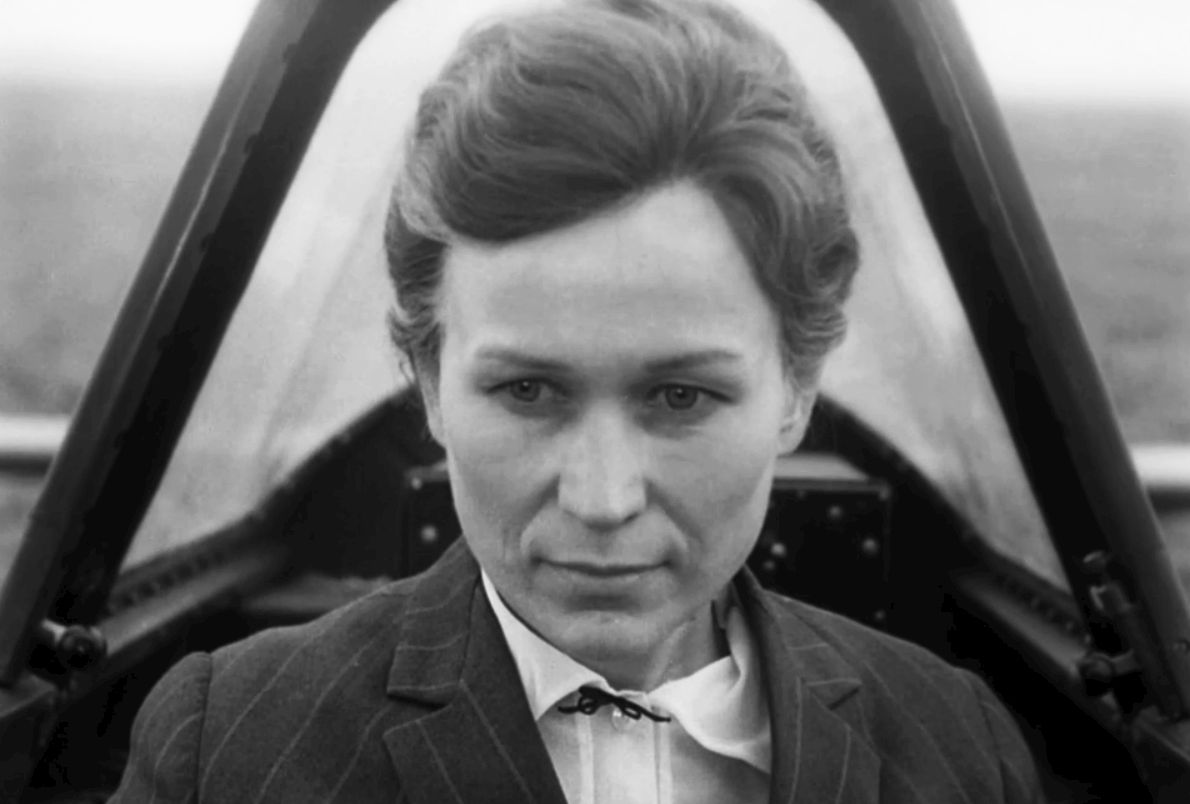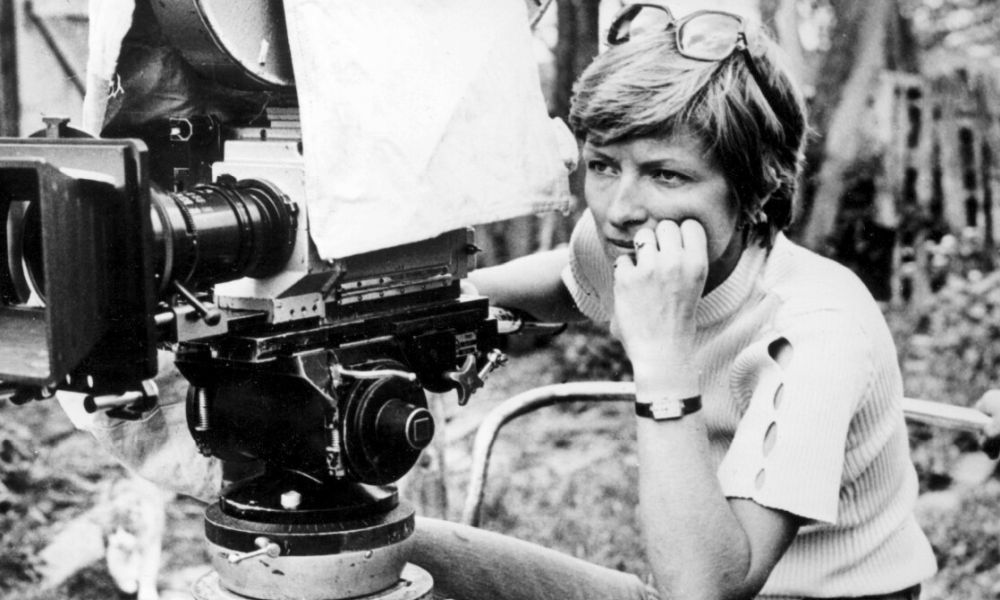"Barely two years after her greatest international triumph—winning the Golden Bear at the Berlin Film Festival for The Ascent— Ukrainian filmmaker Larisa Shepitko tragically died in an automobile accident. The Soviet cinema thus prematurely lost one of the major talents of its post-war generation, and the international film community was robbed of one of its emerging—and potentially most significant—creative lights… Shepitko’s films are visually stunning, and loaded with images that eloquently communicate her characters’ deepest feelings, concerns, and conflicts." - Rob Edelman (International Dictionary of Films and Filmmakers, 2000)
Larisa Shepitko
Director / Screenwriter
(1938-1979) Born January 6, Bakhmut, Ukrainian SSR, USSR (now Bakhmut, Donetsk Oblast, Ukraine)
Top 250 Directors
(1938-1979) Born January 6, Bakhmut, Ukrainian SSR, USSR (now Bakhmut, Donetsk Oblast, Ukraine)
Top 250 Directors
Key Production Country: USSR
Key Genres: Drama, War, Psychological Drama, War Drama, Resistance Film, Adventure
Key Collaborators: Pavel Lebeshev (Cinematographer), Valeriya Belova (Editor), Roman Ledenyov (Composer), Alfred Schnittke (Composer)
Key Genres: Drama, War, Psychological Drama, War Drama, Resistance Film, Adventure
Key Collaborators: Pavel Lebeshev (Cinematographer), Valeriya Belova (Editor), Roman Ledenyov (Composer), Alfred Schnittke (Composer)
"Ukrainian director of controversial political dramas; narrative slow burn; heightened, almost surreal style; use of Christian iconography… Larisa Shepitko attended the State Institute for Cinematography (VGIK) in Moscow, and worked under the tutelage of Alexander Dovzhenko." - Nathaniel Carlson (501 Movie Directors, 2007)
"The career of Larisa Shepitko, an icon of sixties and seventies Soviet cinema, was tragically cut short when she was killed in a car crash at age forty, just as she was emerging on the international scene. The body of work she left behind, though small, is masterful, and her genius for visually evoking characters' interior worlds is never more striking than in her two greatest works: Wings, an intimate yet exhilarating portrait of a female fighter pilot turned provincial headmistress, and The Ascent, a gripping, tragic wartime parable of betrayal and martyrdom. A true artist who had deftly used the Soviet film industry to make statements both personal and universal, Shepitko remains one of the greatest unsung filmmakers of all time." - The Criterion Collection

Wings (1966)
"The director made only a handful of films before her untimely death, but Larisa Shepitko's reputation was defined and immortalised by two compelling, stylistically daring works. The melancholy that pervades Shepitko's small body of work reflects the bitter pain of a life cut short. She was killed in a car crash while scouting locations for her feature adaptation of Farewell to Matyora… Her husband, the director Elem Klimov, eventually completed the film, titled Farewell (1983), along with Larisa (1980), a short tribute to Shepitko." - Ian Haydn Smith (Cult Filmmakers, 2019)
"A contemporary of Andrei Tarkovsky, Sergei Parajanov and Elem Klimov at Moscow’s storied VGIK film school, the Ukrainian-born Larisa Shepitko is only now coming to be widely apprehended in the West as an artist of brilliance comparable to her illustrious peers. Her gender ensured her work originally met with confoundment and resistance in her homelands too; critics could scarcely credit that her films – “very masculine and brutal”, according even to her and husband Elem’s son, Anton Klimov – were the work of a woman." - The Melbourne Cinémathèque, 2019
"Larissa Shepitko could hardly help being a romantic figure—for she was as close to beautiful as film directors can hope to come. In addition, she had been a young student of Dovzhenko and had helped his widow, Yulia Solntseva, complete Poem of the Sea (58). She was also a spokesperson for new moods and hopes in Soviet life, a harbinger of thaw. Then, finally, she and several members of her crew were killed in a car crash near Moscow… In her best work, You and I and The Ascent, Shepitko tackled modern morality issues with vigor and boldness." - David Thomson (The New Biographical Dictionary of Film, 2010)
Selected Filmography
{{row.titlelong}}
Larisa Shepitko / Fan Club
Tara Brady, Pasquale Iannone, Vlado Skafar, Philip Concannon, Mark Cousins.
Tara Brady, Pasquale Iannone, Vlado Skafar, Philip Concannon, Mark Cousins.
"Fan Club"
These film critics/filmmakers have, on multiple occasions, selected this director’s work within film ballots/lists that they have submitted.
These film critics/filmmakers have, on multiple occasions, selected this director’s work within film ballots/lists that they have submitted.


